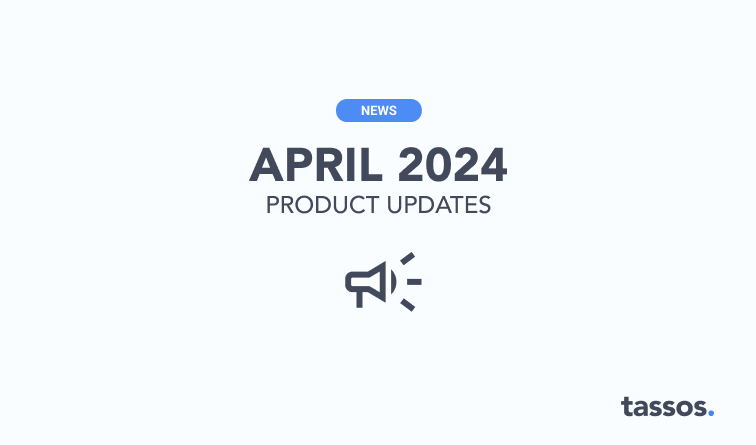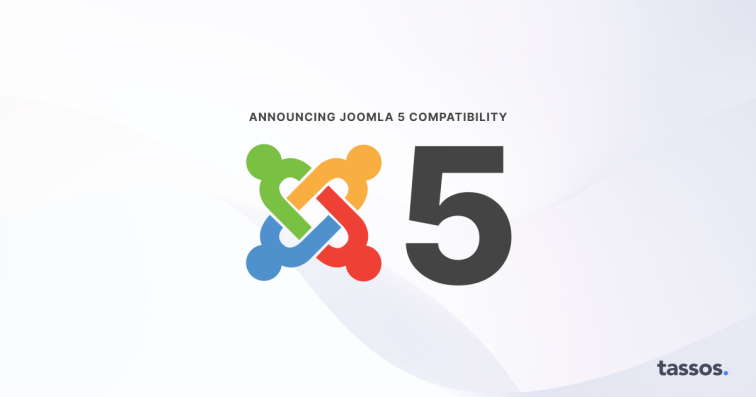2024 April Product Updates

This April, our Joomla updates pack a punch! The new Smile Pack PayPal Button Module simplifies accepting payments with a user-friendly interface, customizable design, and recurring payment options. Upgrading to Joomla 5 is a breeze with guaranteed compatibility for Advanced Custom Fields and Convert Forms. Plus, we're boosting performance and reliability by serving scripts and CSS locally, reducing dependence on external CDNs.
Create PayPal Buttons in Joomla
A couple of months ago, we introduced Smile Pack, a revolutionary suite of modules designed to reduce extension clutter and simplify your Joomla website management. Today, we'd like to unveil the newest member of the Smile Pack family: the PayPal Button Module!

Would you like to instantly sell your products and services without getting bogged down by configuring a full e-commerce Joomla extension? The Smile Pack PayPal Button Module makes it possible! Sell your digital downloads, accept donations, or offer subscription payments — all with a secure and user-friendly Joomla PayPal button set up in under two minutes.
Here's what makes it a game-changer:
- Built on the new PayPal Checkout API: This ensures a smooth and secure experience. The user never leaves your website to complete the payment; it happens within a user-friendly PayPal modal.
- Customize PayPal Button: Design your button to match your website's aesthetic and communicate its purpose. Choose from 5 predesigned color options.
- Accept One-Time or Recurring Payments: Offer one-time purchases, recurring payments (weekly, monthly, yearly, or custom)
- Charge Additional Costs: Handle additional charges like shipping and tax during checkout.
- After Payment Actions: You can control what happens after payment by redirecting it to a success page or displaying a custom message.
- Enable or Disable Payment Methods: You can control which payment methods are available through your button. This includes popular options like credit cards, Venmo (US only), and even specific country payment gateways such as iDEAL for the Netherlands.
- Re-usable PayPal Buttons: Place a single PayPal button across multiple pages and Joomla articles using Smart Tags. These dynamic tags will automatically adjust product details (like name and price) based on your content, allowing you to sell various products or services with just one button.
- Developer Friendly: The module provides a JavaScript API for advanced customization with hooks and methods, which is ideal for developers who want to push the boundaries.
Ready to accept PayPal payments in Joomla? Visit our detailed documentation page for the best PayPal button extension features and configuration options!
Joomla 5 Native Compatibility
We're excited to announce that Advanced Custom Fields and Convert Forms are now fully compatible with Joomla 5 — without requiring the Joomla Backwards Compatibility Plugin! This update ensures that all of our Joomla extensions in the product suite can now be used safely and efficiently with the latest version of Joomla.

With these changes, you can transition to Joomla 5 and take advantage of its new features, knowing that our extensions are designed to work smoothly. We're committed to providing you with the best tools for your Joomla websites, and this update is another step toward that goal.
Reducing CDN Dependency: The Move to Local Files
Due to recent CDN outages causing disruptions, we've adopted a new product approach to ensure consistent performance and reliability. This change started with two of our extensions, Convert Forms and Advanced Custom Fields, and will be extended to the rest of our products in next month's updates. By serving scripts and CSS from local files, we aim to avoid issues arising from third-party CDNs and offer a more stable experience for users. This approach also reduces the likelihood that users blame us for problems caused by external sources.
Here are some key reasons why using local files is a safer and more reliable approach:
- Performance Consistency: When scripts and CSS are served from local files, they come from the same server as the rest of the website. This provides consistent performance, avoiding potential latency or downtime caused by third-party CDN issues. It also reduces reliance on external services, decreasing the risk of plugin failures when CDN providers experience disruptions.
- Enhanced Security: Local files reduce security risks by eliminating the need to fetch external resources that might be compromised or contain malicious code. This approach offers greater control over content and helps protect against potential vulnerabilities.
- GDPR Compliance: We minimize external requests by serving scripts and CSS from local files, reducing the risk of exposing user data or IP addresses to third-party services. This can aid compliance with privacy regulations such as GDPR.
- Improved Compatibility: Local files are less likely to cause conflicts with other plugins or themes. External scripts can change without warning, leading to unexpected behaviors, but local files offer more stability and predictability.
- No Restrictions: CDNs can impose usage restrictions or specific licensing requirements. Using local files avoids these complications, ensuring your plugin operates without external constraints.
- Reduced Bandwidth Costs: Serving local files can lower bandwidth costs than fetching external resources. This is particularly valuable for sites with limited hosting resources or those aiming to minimize outgoing requests.







 Rated:
Rated: 